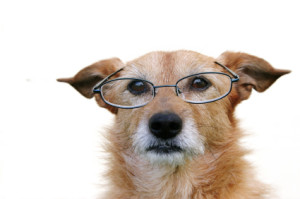Posts Tagged ‘care of aging pet’
Tips For Taking Care of Your Aging Pet
 Regular professional veterinary care is essential to the health of your older pet. Not since your pet was a puppy or kitten have regular check ups and vaccinations been so important. Preventive veterinary care can add years and quality to the life of your older pet. Consider yourself, your pet, and your veterinarian and staff a team whose main goal is to keep your pet happy, healthy and in a loving relationship with your for as long as possible.
Regular professional veterinary care is essential to the health of your older pet. Not since your pet was a puppy or kitten have regular check ups and vaccinations been so important. Preventive veterinary care can add years and quality to the life of your older pet. Consider yourself, your pet, and your veterinarian and staff a team whose main goal is to keep your pet happy, healthy and in a loving relationship with your for as long as possible.
Dogs and cats are living longer than ever and that phenomenon is directly related to the fact that today people take such good care of their animals. Important changes affecting 85% of pets today, with a focus on nutrition, rapidly advancing veterinary care and loving environments are responsible for the life expectancy of animals to be extended, in general, a five years longer across the board than was previously the norm. The human-animal bond is strong. Many people today take fantastic care of their pets and have educated themselves on the best protocols for these important friends. Every aspect of how to care for the family pet is considered in terms of diet, vacations, exercise, entertainment, grooming, wellness comfort, aging and more.
Three important aspects of the aging pet we consider are:
Diet: Obviously starting early is important. Two things can happen to the aging patient: becoming either over or under weight. It is easier to prevent a pet from being overweight than it is to diet him but we are successful at helping the committed owner who wants to help their pet lose weight. This involves selecting the correct snacks, as well as the appropriate food. The underweight and aging pet can be a bit more of a challenge and the underlying causes must be diagnosed but in most cases we can help clients maintain a healthy weight in the elderly pet. One of the most important aspects of diet in the geriatric pet is being aware of the changes going on with respect to his or her vital organs and metabolism and selecting the best diet, supplements, and snacks for his or her particular condition.
There are several prescription foods available that directly target the aging brain. We would be happy to discuss and make recommendations of the excellent choices that are out there.
Preventative Care: As you are aware, pets are very stoic in the face of considerable disease and one of the difficult aspects of care in veterinary medicine is the fact that we ofter do not see the pet until a disease process is very advanced. A well-thought out and followed preventative plan is a great way to minimize testing and monitoring and can offer tremendous insight to what is going on inside the pet. There are medications available that target the diseases and changes that adversely affect the older patient and we can guide you toward those after an evaluation that will tell us if your pet is in need of preventative care.
It is very comforting to pet owners when an elderly patient has a normal physical exam and consult, blood pressure, ECG, and urinalysis. We ask specific questions to discern if there are subtle changes in the animal that might lead us to want further diagnostics.
Exercise: Exercise should be maintained for the elderly patients. Did you know that 15 minutes 3 times per week of forced exercise will go a long way in maintaining a healthy metabolism in your friend? As with diet, exercise should be implemented at a young age and adjusted as the pet ages.
Cognitive function can be supported in the geriatric pet with specific supplements and there are medicines available if your friend is found to be in need. Antioxidants, healthy fats, and pain medications can keep the old aches and pains away just like us! Certain activities and ideas to encourage the older pet and suggestions to protect them, especially when he or she is alone, are available if your need them.
Older pets need regular veterinary care to prevent disease and/or diagnose it early in its course. Many veterinarians have special programs to monitor dogs in their later years of life. Good communications between the owner, dog and veterinarian can keep the pets healthy and make their senior years to be wonderful years. At the end of your pet’s life, your veterinarian can help you in making decisions, provide support, understand and share your grief and celebrate, with you, the life of your pet.
As always, the health of your pet is of utmost importance at our office. Please CONTACT US if you have any questions.
